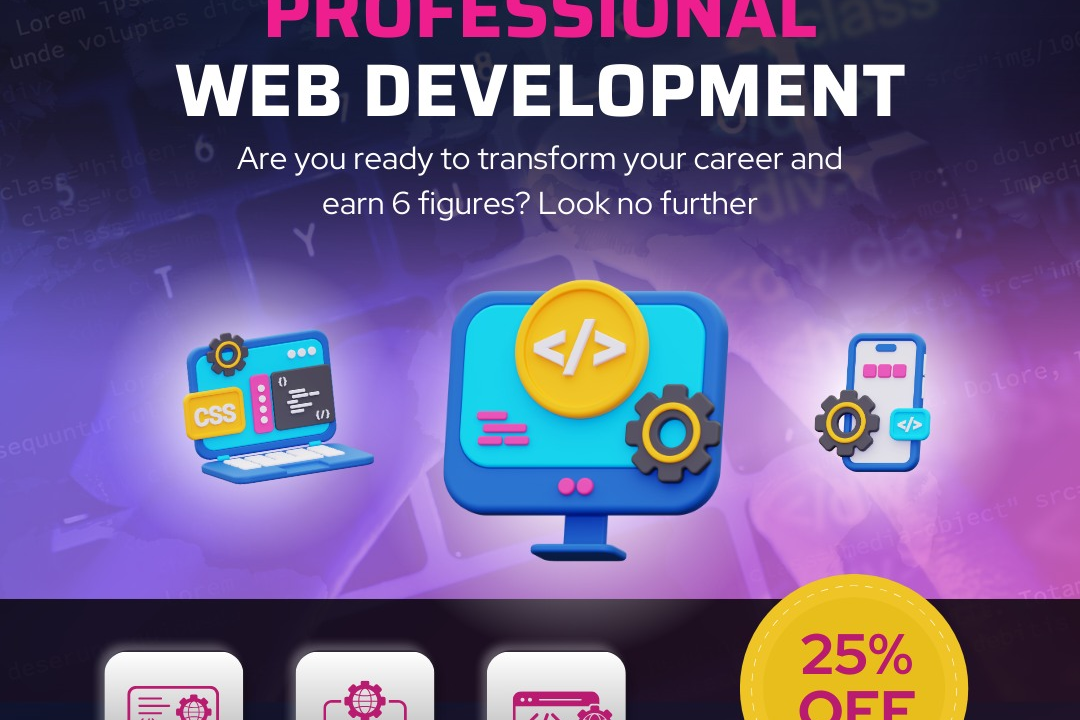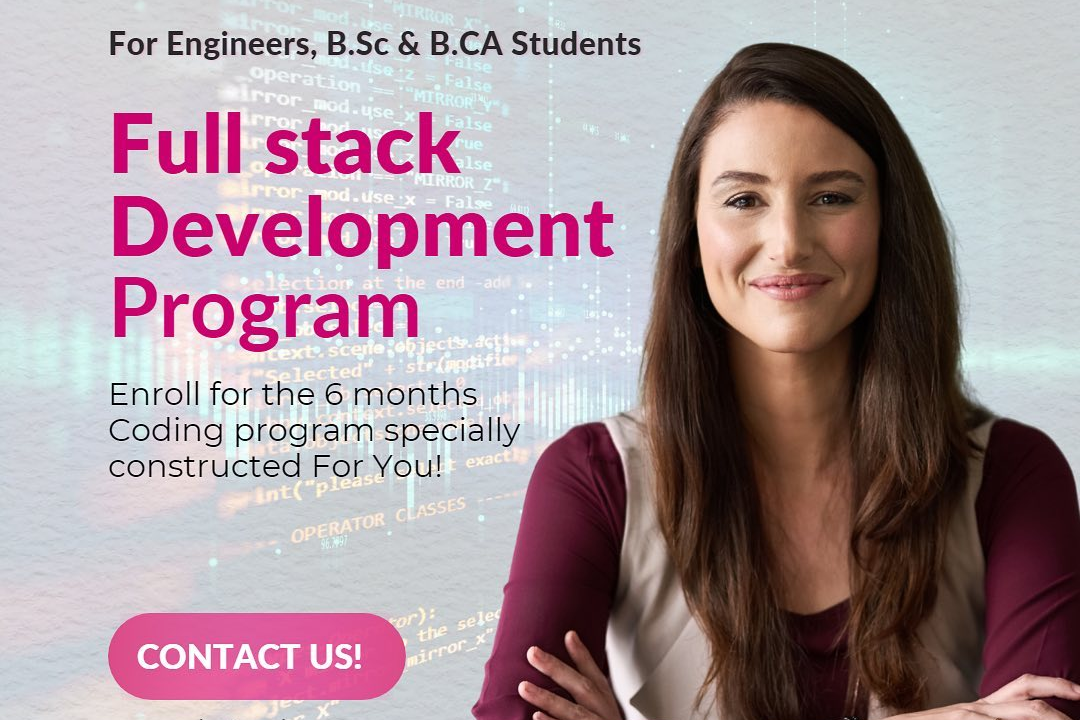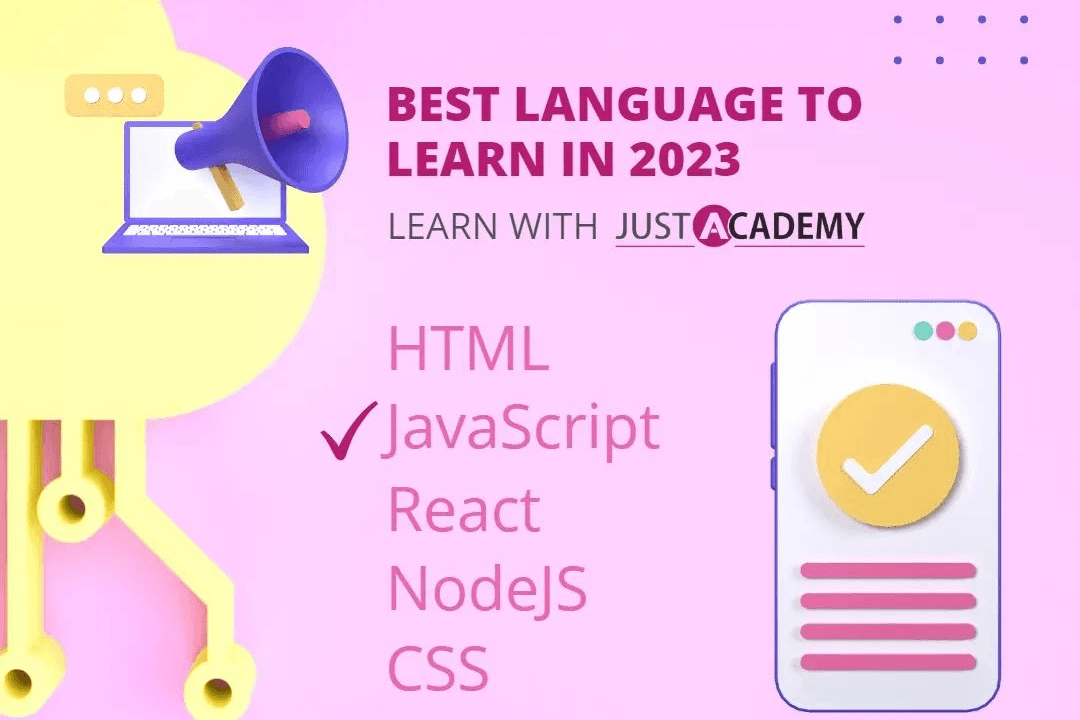Laravel Interview Qy
Essential Laravel Interview Questions for Aspiring Developers
Laravel Interview Qy
Preparing for a Laravel interview is crucial for developers looking to demonstrate their expertise in this powerful PHP framework. Laravel is known for its elegant syntax, strong community support, and robust features that facilitate the development of web applications. By familiarizing yourself with common interview questions on topics such as routing, middleware, Eloquent ORM, and testing, candidates can showcase their understanding of best practices and their ability to leverage Laravel's capabilities effectively. This preparation not only enhances confidence but also highlights a candidate's practical experience and problem-solving skills, making them a strong contender in the competitive job market.
To Download Our Brochure: https://www.justacademy.co/download-brochure-for-free
Message us for more information: +91 9987184296
1 - What is Laravel?
Laravel is a popular PHP framework known for its elegant syntax, expressive features, and development efficiency. It encourages clean and maintainable code, making it ideal for modern web applications.
2) What are the key features of Laravel?
Key features include Eloquent ORM, routing, middleware, Blade templating engine, built in authentication, task scheduling, and Laravel Mix for asset compilation.
3) What is Eloquent ORM?
Eloquent ORM is Laravel’s built in Object Relational Mapping tool that allows developers to interact with the database using an object oriented approach, simplifying database queries and reducing coding time.
4) How does routing work in Laravel?
Routing in Laravel is done through routes defined in web.php or api.php. It connects URLs to specific controller actions or closures, facilitating the handling of incoming requests.
5) Explain middleware in Laravel.
Middleware acts as a bridge between a request and a response, providing a way to filter HTTP requests entering your application. It is commonly used for tasks like authentication, logging, and CORS handling.
6) What are Laravel Service Providers?
Service Providers are the central place to configure and register services in a Laravel application. They bootstrap the application and are responsible for binding services into the service container.
7) What is the purpose of migrations in Laravel?
Migrations act as version control for your database, allowing teams to define and share the database schema easily. They enable incremental database changes, ensuring consistency across environments.
8) How do you handle errors and exceptions in Laravel?
Errors and exceptions are managed using the built in Exception Handler. Custom exception handling can be implemented by modifying the `render` method in the App\Exceptions\Handler class.
9) Explain the Blade templating engine.
Blade is Laravel's own simple yet powerful templating engine that allows developers to write templates using plain PHP, enabling features like template inheritance, sections, and data binding.
10) What is Laravel's authentication system?
Laravel provides a built in authentication system that includes user registration, login, password reset, and email verification features, which can be easily customized and extended.
11 - How do you define API routes in Laravel?
API routes are defined in the `routes/api.php` file. Laravel automatically applies a group middleware designed for APIs, allowing for stateless requests and JSON responses.
12) What is CSRF protection, and how does Laravel implement it?
CSRF (Cross Site Request Forgery) protection is implemented in Laravel by generating a CSRF token for each user session and validating it on form submissions to secure application actions.
13) Explain the concept of dependency injection in Laravel.
Dependency injection is a design pattern used to improve code maintainability by allowing dependencies to be passed into a class instead of hard coded. Laravel’s service container manages dependencies automatically.
14) What are events and listeners in Laravel?
Events are a way to decouple various parts of an application by signaling that something has happened. Listeners respond to these events, performing tasks such as logging or sending notifications when triggered.
15) How can you schedule tasks in Laravel?
Tasks can be scheduled using Laravel’s Task Scheduling feature within the `app/Console/Kernel.php` file. This allows developers to define scheduled commands that the Laravel scheduler runs periodically.
16) What is Laravel's Artisan CLI?
Artisan is a powerful command line interface included with Laravel that allows developers to perform various tasks, such as database migrations, running tests, generating boilerplate code, and more, through simple commands.
17) What are Laravel Policies?
Policies are classes that organize authorization logic for specific models or resources, allowing developers to define rules for CRUD operations and implement authorization in a clean and maintainable manner.
18) What is the purpose of middleware groups in Laravel?
Middleware groups allow developers to combine multiple middleware into a single group, making it easier to apply common middleware across routes or sections of the application, enhancing code organization.
19) How does Laravel handle session management?
Laravel provides an expressive session management system that supports multiple drivers like file, cookie, database, and Redis. Sessions can be easily managed using the session facade and configuration options.
20) What is the purpose of the `config` directory in Laravel?
The `config` directory contains configuration files for various aspects of the application, such as database connections, mail settings, and cache driver choices. These settings can be easily retrieved using Laravel's configuration functions.
21 - Explain the concept of route model binding in Laravel.
Route model binding automatically resolves models based on the route parameters, allowing developers to retrieve the corresponding model instance directly by type hinting it in the route or controller action.
22) What are Laravel queues?
Queues allow developers to defer the execution of a time consuming task, such as sending emails or processing uploads, to improve the application's responsiveness. Laravel includes a unified API for various queue backends.
23) How does Laravel support localization?
Laravel supports localization by providing an easy way to organize language resources, utilizing language files to manage translations, and allowing applications to adjust texts based on the user's locale.
24) What are Laravel facades?
Facades provide a static interface to classes that are available in the service container, allowing developers to use expressive syntax for complex tasks while maintaining the underlying functionality of the framework.
25) How can you create and manage custom helpers in Laravel?
Custom helpers can be created by defining functions in separate PHP files and including them via the `composer.json` file or the `AppServiceProvider`, enabling the use of reusable utility functions throughout the application.
26) What is Laravel Mix, and how does it work?
Laravel Mix is a wrapper around Webpack designed for compiling and optimizing assets such as JavaScript, CSS, and images. It simplifies the build process with a fluent API, allowing developers to define asset compilation tasks easily.
27) How do you implement file storage in Laravel?
Laravel provides a clean API for file storage through the `Storage` facade, enabling developers to manage files across different file systems (local, S3, etc.) using a consistent interface for uploading, retrieving, and deleting files.
28) What is service container in Laravel?
The service container is a powerful dependency injection container that manages class dependencies and performs dependency resolution, allowing for robust and testable applications.
29) How do you implement API rate limiting in Laravel?
API rate limiting can be implemented using Laravel's built in throttle middleware, which applies rate limits to routes, helping prevent abuse of the API by limiting the number of requests from a client.
30) What role does Laravel Tinker play in development?
Laravel Tinker is an interactive command line REPL (Read Eval Print Loop) that allows developers to interactively test and execute code snippets, interact with the database, and experiment with application logic in a quick and efficient manner.
Course Overview
The “Laravel Interview Q&A” course is designed to equip learners with essential knowledge and skills needed to excel in Laravel-related job interviews. Covering a wide range of topics, including core concepts, architectural patterns, RESTful API development, and advanced features like middleware and service containers, the course provides comprehensive insights into the Laravel framework. Through real-time projects and practical examples, participants will gain hands-on experience, enhancing their problem-solving abilities and confidence. By the end of the course, learners will be well-prepared to tackle common interview questions and showcase their expertise in Laravel development effectively.
Course Description
The “Laravel Interview Q&A” course is an intensive program designed to prepare participants for job interviews focused on the Laravel framework. This course covers essential concepts, features, and best practices of Laravel, including routing, middleware, database management, and RESTful API development. Learners will engage with real-time projects that simulate real-world scenarios, enhancing their understanding and practical skills. By addressing common and advanced interview questions, this course ensures that participants are equipped with the knowledge and confidence needed to impress potential employers and secure positions in Laravel development.
Key Features
1 - Comprehensive Tool Coverage: Provides hands-on training with a range of industry-standard testing tools, including Selenium, JIRA, LoadRunner, and TestRail.
2) Practical Exercises: Features real-world exercises and case studies to apply tools in various testing scenarios.
3) Interactive Learning: Includes interactive sessions with industry experts for personalized feedback and guidance.
4) Detailed Tutorials: Offers extensive tutorials and documentation on tool functionalities and best practices.
5) Advanced Techniques: Covers both fundamental and advanced techniques for using testing tools effectively.
6) Data Visualization: Integrates tools for visualizing test metrics and results, enhancing data interpretation and decision-making.
7) Tool Integration: Teaches how to integrate testing tools into the software development lifecycle for streamlined workflows.
8) Project-Based Learning: Focuses on project-based learning to build practical skills and create a portfolio of completed tasks.
9) Career Support: Provides resources and support for applying learned skills to real-world job scenarios, including resume building and interview preparation.
10) Up-to-Date Content: Ensures that course materials reflect the latest industry standards and tool updates.
Benefits of taking our course
Functional Tools
1 - Laravel Framework
Laravel is the core framework utilized in this course, offering a modern and elegant toolkit for developing web applications. Known for its expressive syntax, Laravel simplifies common tasks such as routing, authentication, and caching. Students will explore its features like Blade templating engine for easy views, and Eloquent ORM for database management, giving them a practical understanding of how to build scalable applications efficiently.
2) PHP Programming Language
Understanding PHP fundamentals is critical, as Laravel is built on this powerful language. The course will reinforce PHP concepts such as object oriented programming, error handling, and MVC architecture. With a strong grasp of PHP, students will feel more confident in manipulating Laravel’s features and customizing applications to meet specific requirements, which is an essential skill that employers look for.
3) Composer
Composer is a dependency management tool for PHP that plays a vital role in Laravel development. Students will learn how to install and manage libraries and packages, automate workflows, and maintain project dependencies effectively. Knowledge of Composer not only streamlined the development process but also ensures that projects remain up to date with the latest security patches, enhancing overall reliability.
4) Git and Version Control
Version control is key to managing code changes and collaborating with other developers. The course will introduce students to Git, the most widely used version control system. Participants will learn to track changes, manage multiple versions of projects, and collaborate seamlessly with teams. Mastery of Git enhances a developer's workflow and is a standard requirement in most technical interviews across the tech industry.
5) MySQL Database
MySQL is the relational database management system frequently used in conjunction with Laravel applications. Students will gain hands on experience in designing, querying, and managing databases. By exploring concepts like migrations and seeders within Laravel, participants will understand how to build robust database architectures that are essential for supporting dynamic web applications, a skill highly valued in the job market.
6) Postman
Postman is an essential tool for API development and testing. Students will learn how to create, manage, and test APIs within Laravel applications. Utilizing Postman, participants can validate their API endpoints, check responses, and document APIs for future reference. Familiarity with Postman not only simplifies the development process but also prepares students for real world scenarios where API functionalities are crucial for application success.
7) RESTful API Development
Understanding REST (Representational State Transfer) architecture is crucial for modern web applications. This course will guide students in building and consuming RESTful APIs using Laravel. Participants will learn how to create endpoints, handle requests and responses, and ensure secure and efficient data exchange. Mastering RESTful API development enhances a developer's ability to create interactive applications that can easily integrate with various services and platforms.
8) Front end Integration
Incorporating front end technologies, such as HTML, CSS, and JavaScript, into Laravel applications is essential for creating responsive user interfaces. This course introduces students to the tools and methodologies necessary to connect back end services with front end components. By learning to implement front end frameworks like Vue.js or React alongside Laravel, students will enhance their full stack development skills, making them more versatile in the job market.
9) Authentication and Authorization
Securing applications is a top priority for developers, and Laravel provides an intuitive way to implement authentication and authorization features. This course covers how to set up user registration, login systems, and role based access control. Students will gain insights into best practices for securing sensitive data and creating safe user experiences, a critical aspect of modern web applications.
10) Testing and Debugging
Robust applications require thorough testing. This course will introduce students to unit testing and feature testing within Laravel, helping them understand how to write tests that ensure their applications function correctly before deployment. Additionally, debugging techniques will be explored, equipping students with the skills needed to identify and resolve issues proactively, which is integral to maintaining software quality.
11 - Deployment and Hosting
Taking an application from development to production is a vital skill. Students will learn how to deploy Laravel applications to various hosting environments, including shared hosting and cloud services like AWS. This includes configuring servers, setting up environments, and optimizing performance. Understanding the deployment process ensures that students can successfully launch their projects into the real world.
12) Real time Applications with WebSockets
Creating real time applications has become increasingly essential, and Laravel provides powerful features to build such functionality. This section will cover how to implement WebSockets to manage real time data exchange in applications. Students will learn to develop interactive elements, such as chat applications or live notifications, significantly enhancing their development portfolio.
13) Middleware and Service Providers
Understanding Laravel’s middleware and service providers is essential for customizing the request handling process and integrating services. This course will explain how to create and use middleware for tasks like logging or user authorization and how to register service providers that facilitate the bootstrapping of various components in an application. Mastering these concepts allows for the creation of more modular and maintainable code.
14) Task Scheduling and Queues
Laravel's task scheduling and queue systems help manage time consuming processes efficiently. This section of the course will show students how to schedule recurring tasks and handle job queues to improve application performance. Getting acquainted with asynchronous processing will enhance their capacity to build scalable applications that can handle multiple tasks simultaneously without compromising on responsiveness.
15) Building and Consuming GraphQL APIs
With the rise of GraphQL as an alternative to REST, this course will also touch upon building and consuming GraphQL APIs using Laravel. Students will learn the benefits of GraphQL, including efficient data fetching and strong type systems, and how to implement these features in their applications, preparing them for evolving industry standards.
16) Deployment with Continuous Integration/Continuous Deployment (CI/CD)
Integrating CI/CD practices into the development cycle enhances efficiency and reduces the risk of errors during deployment. This course will expose students to tools and platforms that support CI/CD workflows, demonstrating how to automate testing and deployment processes. Understanding CI/CD principles is key for developers who aim to work in modern software development environments.
These additional points ensure that students gain comprehensive knowledge of Laravel and its ecosystem, preparing them for various real world development scenarios and improving their employability in the tech industry.
Browse our course links : https://www.justacademy.co/all-courses
To Join our FREE DEMO Session: Click Here
This information is sourced from JustAcademy
Contact Info:
Roshan Chaturvedi
Message us on Whatsapp: +91 9987184296
Email id: info@justacademy.co
Laravel Prcatical Interview Question
laravel interview questions for 4 YEAR EXPERIENCE












